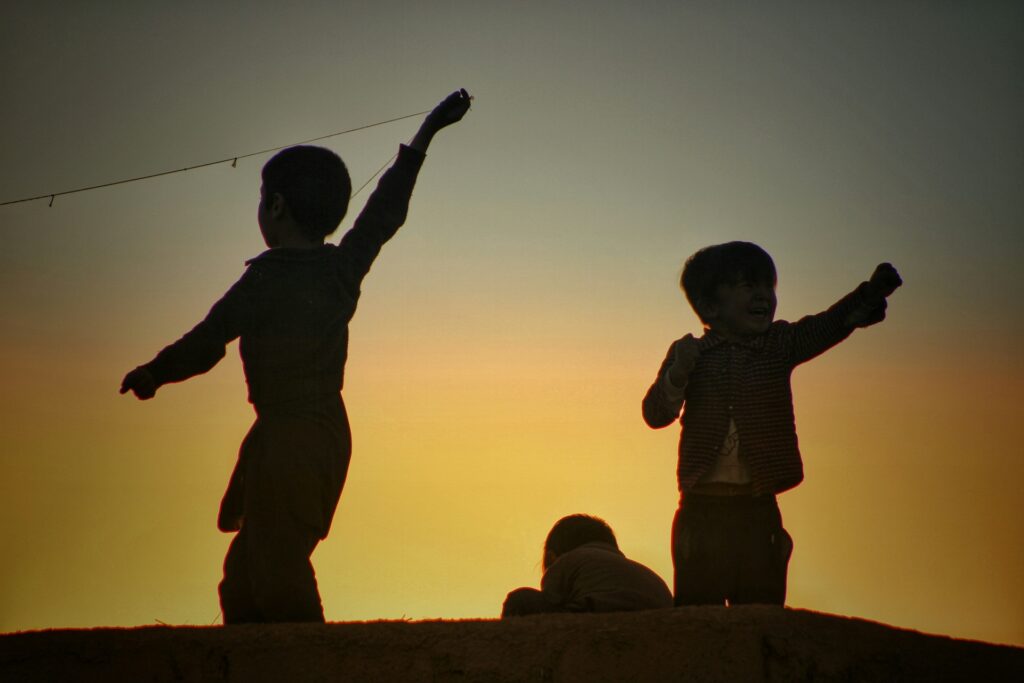EECERA Conference 2025 – Guest Blog # 13: Play in Refugee and Displacement Context
Posted 11th August 2025
One of a series of short blog posts by presenters who will be sharing their work at the upcoming annual conference in Bratislava, Slovakia. Any views expressed in this post are those of the author(s) and do not necessarily reflect the official stance of their affiliated institution or EECERA.
Play in Refugee and Displacement Context: Centering Culture in ECD, Learning from the Humanitarian Play Lab
By Taslima Begum, Senior Research Associate, BRAC Institute of Educational Development (BRAC IED)

Photo by Farid Ershad on Unsplash
Play is a universal and natural instinct for children. Even in times of crisis, climate vulnerability, and displacement, even in overcrowded refugee camps where families face loss, trauma, and daily uncertainty, children continue to play and often create moments of joy in hardship. But what happens when this innate drive to play is nurtured with purpose, grounded in culture, and thoughtfully structured to promote belonging, learning, and healing?
At EECERA 2025, I will be presenting research findings from the Humanitarian Play Lab (HPL), a culturally rooted, community-driven, play-based model designed by BRAC for children affected by forced displacement. Implemented within the Rohingya camps in Cox’s Bazar, Bangladesh, this model demonstrates how play can be a powerful vehicle not only for enjoyment or early learning, but also for nurturing cultural identity and promoting psychosocial wellbeing in Humanitarian settings.
Holding on to Roots: Why Cultural Play Matters for Displaced Communities
Displacement disrupts more than just physical spaces; it disrupts identity. For children, whose sense of self is shaped through language, traditions, and social bonds, this disruption can be particularly profound. In the case of the Rohingya community, children now live in makeshift shelters in Cox’s Bazar, far from their homeland, with few opportunities to engage with their cultural heritage.
Having lost their homes, routines, and in many cases, close family members, these children face a deep fragmentation of wellbeing and identity. In this context, culturally grounded play is not a luxury; it is a necessity. Our work has shown that when play incorporates familiar songs, stories, language, and customs, it allows children to reconnect with who they are. It fosters a sense of pride, belonging, and resilience.
Humanitarian Play Lab
The Humanitarian Play Lab (HPL), developed by BRAC, is designed to provide safe, stimulating, and culturally responsive play spaces for displaced and vulnerable children. Co-created with the Rohingya community, the model integrates traditional rhymes (Kabbiya), folktales (Kissa), and crafts to create familiar, meaningful environments rooted in memories of home. Operating across 304 sites in Cox’s Bazar, each HPL is facilitated by trained Rohingya play leaders and follows a structured daily routine to support children’s emotional regulation, engagement, and wellbeing.
What We’ve Learned
● Culture Is Not an Add-On, It’s Foundational: In humanitarian settings, culture isn’t an optional element; it’s the foundation for growing identity and resilience. Integrating local language, stories, and traditions into early learning environments nurtures children’s identity, fosters emotional safety, and supports healing amid displacement and uncertainty.
● Caregivers Value Cultural Continuity: Parents and grandparents often express pride and relief that their children are learning in spaces where Rohingya traditions and language are preserved, especially as these cultural symbols are often at risk of disappearing in protracted displacement.
● Facilitators (Play leaders) are Cultural Transmitters: The role of female play leaders extends beyond facilitation, they become bridges between generations. By using the Rohingya language and engaging children in daily storytelling, songs, and rituals, they become vital links between generations, helping children reclaim their identity and voice.
● Children Thrive When Culture Shapes Their Play: When children see their language, stories, and traditions reflected in play, it strengthens their sense of self. Culturally grounded activities, like rhymes, storytelling, music, and games, not only support emotional regulation and peer interaction but also build confidence and a sense of belonging. Familiar play experiences provide a safe, predictable space for expression, helping children heal and develop resilience amid the uncertainties of displacement.
Implications for Early Childhood Programming in Humanitarian Settings
This research brings the idea that early childhood interventions in emergencies should not focus solely on basic care or accelerated learning. Preserving culture and identity through play is critical for fostering resilience and wellbeing among displaced children.
The Humanitarian Play Lab (HPL) model also emphasizes community ownership. By training Rohingya women as play leaders and co-creating culturally rooted learning materials, BRAC ensures the approach is not only contextually relevant but also sustainable and empowering for the community itself.
Looking Forward
At EECERA, we are excited to share the detailed findings of our study and engage with peers working on play, protection, and early childhood development across diverse contexts. Led by Justine Howard, Sakila Yesmin, Taslima Begum, and Dr. Erum Mariam, the research shows how preserving culture in early learning strengthens Rohingya children’s resilience and wellbeing. While the findings focus on Cox’s Bazar, HPL is also being implemented in Uganda, offering valuable lessons for early childhood programs in other humanitarian settings.
When we value and protect children’s cultural identity through play, we offer more than learning; we help build a future they can recognize, connect with, and call their own.
Connect with me:
LinkedIn: www.linkedin.com/in/taslima-shormi-4b49a472/
ResearchGate: Taslima Begum
email: taslima.begum@bracu.ac.bd
Taslima Begum will present work referred to in this blog in Symposium Set D (Wednesday, the 27th of August). (Schedule liable to change; please refer to final programme for details).
